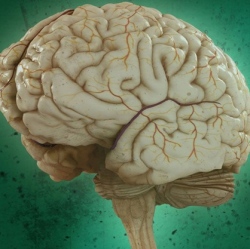
A virus found in sewage has spawned a unique drug that targets brain plaques. Results from tests of the drug, announced this week, show that it breaks up plaques in mice affected with Alzheimer’s disease or Parkinson’s disease, and improves the memories and cognitive abilities of the animals.
Other promising results in rats and monkeys mean that the drug developers, NeuroPhage Pharmaceuticals, are poised to apply for permission to start testing it in people, with trials starting perhaps as early as next year.
The drug is the first that seems to target and destroy the multiple types of plaque implicated in human brain disease. Plaques are clumps of misfolded proteins that gradually accumulate into sticky, brain-clogging gunk that kills neurons and robs people of their memories and other mental faculties. Different kinds of misfolded proteins are implicated in different brain diseases, and some can be seen within the same condition
A key component of the new plaque-busting drug from NeuroPhage Pharmaceuticals is a protein from a bacteriophage, a type of virus that exclusively infects bacteria. Called M13, the phage was originally isolated from sewage in Germany 50 years ago.
Today it is used to screen for antibodies with medical potential. Its plaque-defeating properties were discovered by sheer chance. “It was a total surprise,” says Richard Fisher, chief scientist at NeuroPhage.
The drug is made up of a viral protein that recognises the structural kink that is shared by the misfolded proteins implicated in various brain diseases. This is attached to a fragment of a human antibody. The phage protein binds to the plaques, then the antibody portion marks it for clearance from the brain, says Fisher.
